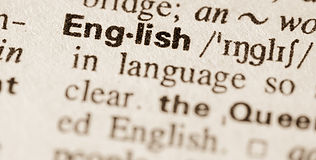-
 BEFORE YOU MOVE
BEFORE YOU MOVE
-
 GETTING HERE
GETTING HERE
-
 LIVING HERE
LIVING HERE
-
 GETTING AROUND THE REGION
GETTING AROUND THE REGION
-
 WORKING WITH US
WORKING WITH US
-
 LIFE AFTER MONKEYTREE
LIFE AFTER MONKEYTREE
-
 USEFUL LINKS
USEFUL LINKS
before you move
What are the basic job requirements?
In order to qualify for a teaching position, as well as to qualify for an employment visa, you will require a minimum of a TEFL certificate (>100 hours), a degree of any discipline from an accredited university, and 2 years’ work experience post degree.

What is a TEFL?
TEFL stands for Teaching English as a Foreign Language. There are various similar abbreviations (TEFL/TESL/TESOL) but they all represent courses that go through the basics of language acquisition and equip you with the knowledge of how to teach English to non-native speakers.
What’s the difference between a TEFL, a CertTESOL, and a CELTA?
A TEFL certification would be considered to be the ‘basic’ qualification. TEFL courses come in all shapes and sizes, and are not all equal in the depth and scope of the skills that they teach. CertTESOL is a strictly quality-controlled course offered by Trinity College London. CELTA is the Cambridge English equivalent. CertTESOL and CELTA courses are guaranteed to go in depth and are two of the only qualifications that are recognized as minimum requirements by other institutions, such as the British Council.
I don’t have a TEFL certificate. What do you suggest?
There are many different ways to get a TELF certificate. Monkey Tree and our recruitment partners, Global Teacher Recruitment, offer TEFL courses at 15% off of market price at iTTT. You can use the following link to get your automatic 15% off any course: teflcourse.net. Alternatively, you may choose to do a CELTA through our partners at the British Studies Centres in the UK. Please ask our any of our recruitment specialists to find out more.
What clothing styles are typical in China?
China does not have any strict clothing requirements or cultural norms that apply to foreigners. Regular Western clothes are normal almost everywhere.
Who or what is Global Teacher Recruitment?
GTR is our official and exclusive recruitment partner. If you were referred to Monkey Tree through one of their representatives, rest assured that they are fully trained and familiar with Monkey Tree operations and hiring practices, and are close partners of ours. You may have met a representative in Canada, the UK, or South Africa, but they are all from the same company (GTR) and we consider them to be a close and important part of our recruitment team.
What’s the weather like?
Due to its size, China’s weather is diverse. In many cases, the summers are hot. Really hot. And winters can get cold. Not to worry, because basically everywhere in every city is air-conditioned or heated for your comfort. In some parts of the country, when it rains, it pours. Depending on where in the country you will be working, you’ll want to do a quick Google search to get up-to-date information.

Pollution – I’ve heard it’s bad. Is it?
If you’re coming from a Western country, then the short answer is ‘yes’. However, it is uncommon to be as bad as the headlines on CNN would suggest, and when it is, you’re unlikely to notice it once you’re indoors. While our staff and teachers have almost certainly experienced high levels of visible smog at some point, very few, if any, have reported to have experienced adverse health effects. If you do consider yourself to be quite sensitive to pollution, we recommend speaking to your personal physician for advice and precautionary measures.
Do I need a visa to enter China?
Most nationalities do require a visa to enter China, which typically must be pre-arranged through your country’s Chinese embassy. Whether you’re personally applying for a tourist visa or if Monkey Tree is applying for your Z visa (work permit), you’ll want to check the requirements and regulations well in advance. In some instances, you will be required to send your passport to the embassy. While many people find this to be a bit worrisome, it is totally normal and routine.
If my family members want to come with me, do they need a visa?
Probably. Please refer to “Do I need a visa to enter China” for more details.
What is the currency in China?
The Chinese Renminbi (RMB). Check xe.com for the most up-to-date exchange rates.

Do I need to bring local currency with me?
Not necessarily. It’s advisable that you bring about RMB500 cash with you just to make sure you can get to where you’re going on arrival, but the cities are extremely international, meaning that almost any debit card should work in local ATMs. We suggest that you ask your bank for more specific details if you have any concerns, but from our experience, very few (if any) people ever have issues accessing money from overseas.
I’m an athlete. Are organized/drop-in sports prevalent in China?
Yes. While it is difficult to give any specifics, we suggest that you try to find expat WeChat groups that are based in your city of employment for more details.
What sporting gear can’t I get in China?
You can find virtually anything you need here, but if you require very specialized gear for a very specialized sport, we suggest that you look online to confirm availability, or bring some equipment with you. For instance, we cannot guarantee that you’ll specifically find your favorite Easton ice hockey stick or Prince tennis racket. However, you will find an equivalent product available somewhere (or online).
I don’t speak Cantonese or Mandarin. How much of a struggle will this be?
Most people in China speak Mandarin. Some cities make it more challenging to survive without the language than others, but you will be fine with basic sign language. Basic ‘taxi Mandarin’ is picked up quite easily, so within a few weeks you’d be fine ordering food and getting home without confusion.
I require a specific type of medication. Can I get it there?
This is very case-specific and we suggest that you make sure to check with your local doctor or pharmacy, as well as make some personal inquiries before you leave home.
What type of health insurance is most common in China?
Medical insurance can be obtained through various providers, but from our experience, many teachers do not choose to get coverage as medical bills tend to be significantly cheaper than in the West. Please note that this information is only for reference, and you are advised to do your own independent inquiries if you have any concerns.

